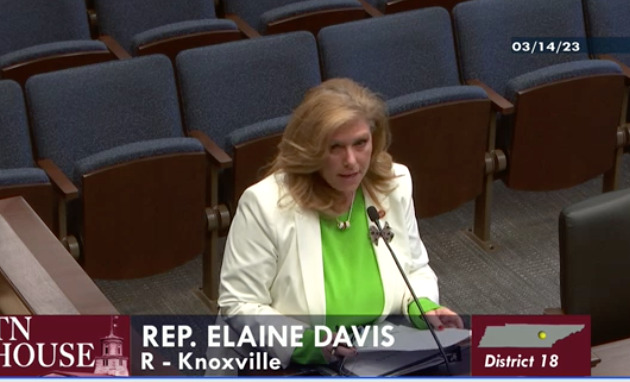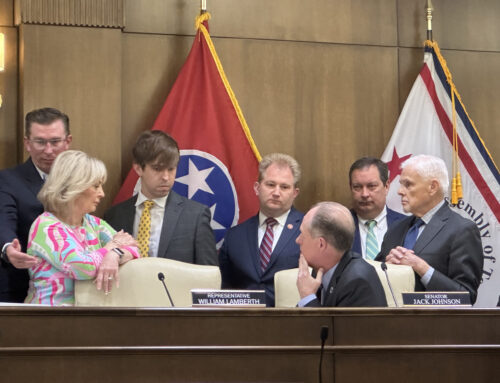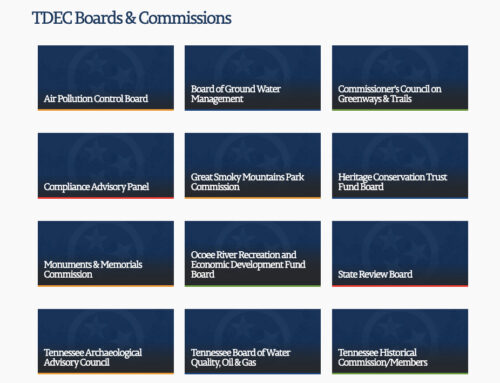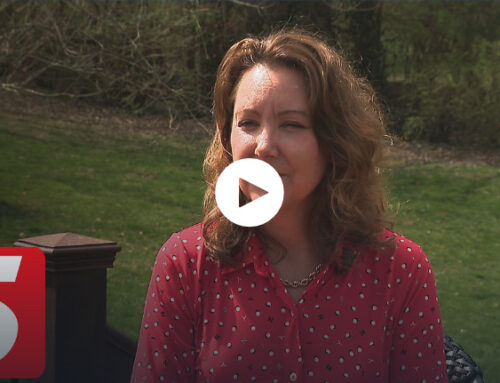The House Public Service Committee approved a bill on Monday that would allow a governmental body to post notices of public meetings on its website. The bill next goes to the House State Government Committee.
The bill approved by the committee, HB 449 by Elaine Davis, R-Knoxville, adds a new subsection to the Open Meetings Act section on meeting notices.

Rep. Elaine Davis’s bill would allow governmental entities to post meeting notices on their website if they also have a mechanism to send meeting notices to residents.
If the governmental body uses its website for its meeting notices, it must also “establish a mechanism by which a person may sign up to receive such notices…by electronic mail, or, alternatively, to receive a hardcopy by regular mail.”
After pushback from the University of Tennessee, the bill was updated to say that a governmental body is “not required to respond to a request to receive a notice or e-newsletter …if the request is made in bad faith.”
The amendment, however, didn’t appear to appease the University of Tennessee lobbyists who continued to express concern about the requirement that would mean the University of Tennessee Board of Trustees would have to send meeting notices to those who requested them.
During the bill’s hearing, Rep. Kelly Keisling, R-Byrdstown, noted that “higher ed” still had concerns about the bill. He asked what “bad faith” meant.
“If there is a concern by that governmental body that they have people that are calling in to request hard copies in order to create a huge expense for that governmental body, that it’s not that they’re interested in being noticed or made aware of the notification of that meeting, they’re interested in being malicious then (the governing body has) the ability to not have to comply with that sort of actor that is acting in bad faith.”
UT asked to exempt its board from requirement to mail, email meeting notices
Keisling, who is chairman of the House State Government Committee, asked if Davis would be willing to amend the bill before it goes before the State Government Committee to simply exempt “higher ed” from any requirement of having to comply with requests by citizens to receive meeting notices, which Davis agreed to do.
The committee’s legislative attorney, Matt Mundy, told the committee that the language in the bill might alleviate some of the concerns about the cost. He said he wanted to clarify for the committee that the bill gives the governing body who posts meeting notices online the option to provide the meeting notice to the public— either by electronic mail or by regular physical mail. “It doesn’t require them to do both,” Mundy said.
“So if they just have a response mechanism to do it by electronic means, it doesn’t mean they are bound to send out mailed hard copies for every single notice,” Mundy said.
Davis said that the option in the bill to send a meeting notice by regular mail was in the bill “just in the off chance that someone doesn’t have access to the internet. So that way it would be a safety net for someone who truly wanted to be notified but didn’t have the capability of accessing the internet.”
The bill is being carried in the Senate by Adam Lowe, R-Calhoun.




